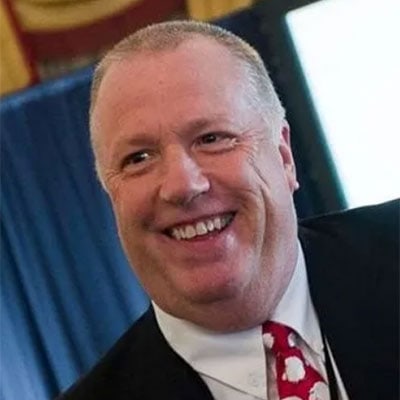The Great Mask Debate has once again bubbled to the surface. With the President and the First Lady testing positive for the Wuhan Virus and the City of New York now imposing fines of up to $1000 for those who refuse to comply, there will undoubtedly be a loud resurgence of calls for new executive mandates requiring everyone to wear a mask.
These mandates, while possibly well-intentioned, are an egregious overreach of states’ legal authority. Setting aside the competing scientific studies whether wearing a mask actually does or does not make a difference in contracting the virus, the standard being cited, “for the safety of all”, is not a valid legal standard.
It is true that, historically, both governors and presidents have attempted to use the claim of a national emergency as justification to sharply limit our individual freedoms. Sometimes they have been justified. However, more often than not, it has been an abuse of their authority, with the forced incarceration of Americans of Japanese descent into concentration camps as the most horrendous historical example. Other examples of government overreach at the expense of our civil liberties include the suspension of the writ of habeas corpus during the Civil War as well as the passage of the USA Patriot Act and expansion of the FISA Court in the aftermath of 9/11.
These abuses are well-documented, especially the latter which we have now come to find out was used to target an incoming president. In each instance, security and the need to protect the public “for the safety of all” was, and is, the standard used to justify curtailing our constitutionally protected rights.
There is a much larger and more important issue at stake beyond just whether to wear a face mask or not. It goes without saying that our liberties must always be balanced between freedom and security. To date, all state mandates have been implemented by executive authority. The standard cited by most states, if they even bothered to cite one at all, presents a very slippery slope that can and will inevitably be used as a justification in the future to further restrict our rights to decide freely what is in our own best self-interest.
The question then must be asked, does a governor have such authority? Can a state force specific behavior on its citizens based on what is perceived to be best “for the safety of all”? Were governors to have such unilateral authority, what is to prevent them from enacting additional emergency resolutions limiting our right to choose even more in the future?
Going further, using the justification of “for the safety of all”, what would prevent an executive order requiring the vaccination of all citizens against the Wuhan virus when one is found? Are they going to guarantee the safety of the vaccine as well? Going further, what is to prevent an executive mandate requiring a statewide flu vaccine? Or dictating the foods we eat, using the same justification?
Protecting the environment has already been interpreted by some as a “for the safety of all” issue. Where would such supposed authority end? What of the precedent that such a decision, if left unchallenged, would establish? Using the same argument, what would prevent states from restricting our right to bear arms, or confiscate legally owned firearms “for the safety of all”?
States that have imposed mask mandates incorrectly and carelessly open the door to even greater encroachment and erosion of our personal freedoms and liberties. It is a short distance from a mask mandate to the 2nd Amendment.
Americans need to push back and draw a line in the sand. We must unequivocally state that regardless of the consequences, we will not be compelled to wear a mask against our will, as it violates our constitutional liberties. We will only wear a mask when and where we deem it to be appropriate.
Ben Franklin famously said, “Those who would give up essential Liberty, to purchase a little temporary Safety, deserve neither Liberty nor Safety”. The decision to wear a mask or not must remain a personal choice and a personal responsibility. The decision should be left to each individual, based on our own considerations.
At a minimum, such a decision should require broad legislative support, as the Michigan Supreme Court recently ruled. Better still, any mandate should really be put to the voters of each state through a special election to determine the will of the people. In short, let the people decide what is or is not in their own best interest.




